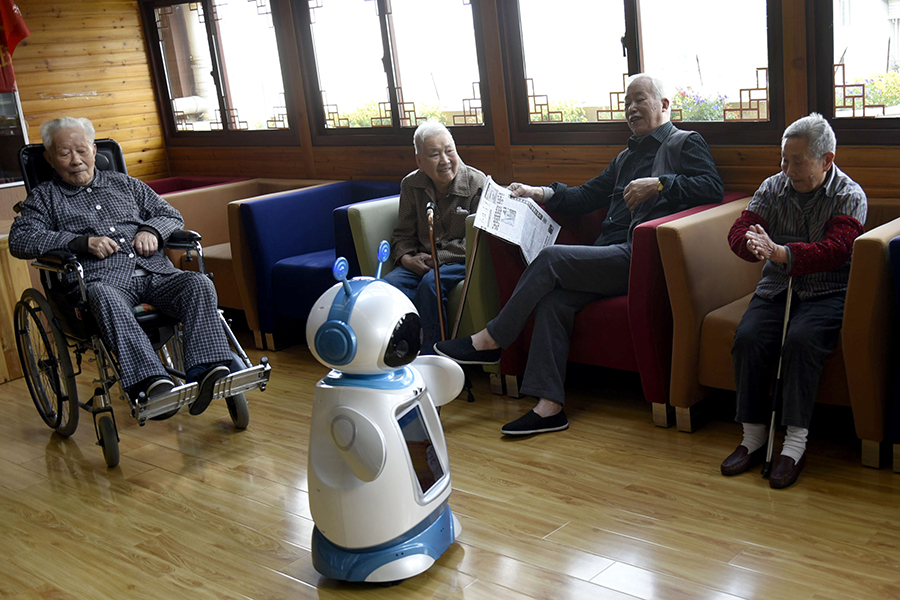Sunrise sector brightens sunset years


"Our cooperation (with Taikang) is expected to inject new vitality into the Chinese senior-care industry," said Gao Tianli, president of Orpea's China unit.
Elsewhere, various government departments concerned are researching the sector intensively and holding seminars.
Administrative procedures are being simplified to expedite private investments in the sector. At the same time, state institutions in elderly care are being reformed and modernized.
That's not all. The government said it will improve the policy on financial support for elderly care projects. This is expected to increase investments as well as financing channels, and better coordinate planning for balanced urban-rural distribution of projects and judicious land use.
The net result of all these measures could be not only that supply of elderly care services will rise to meet demand but the quality of the industry will likely improve, market insiders said.
According to a recent report by market research firm ASKCI Consulting, state institutions outnumber private-sector services in China's elderly care market. The demand-supply gap has been widening, especially in terms of beds.
In 2016, there were 28,500 nursing homes for the elderly in China offering 7.8 million beds. In other words, for every 1,000 elderly people, there were only around 34 beds available, a far cry from the situation in developed countries.
Even though the number of elderly homes will surpass 30,000 this year, the potential for future growth remains huge, experts said.
Li Chang'an, a professor with the School of Public Administration of the University of International Business and Economics, Beijing, said: "The introduction of foreign investment can make up for the capital shortage. Although the country has always been actively raising funds for the elderly care industry, the funding gap is still huge. The entry of foreign capital will help increase supply.
"In addition, through the introduction of foreign capital, the quality of the nation's elderly care services can be raised. We can learn from advanced management, expertise, service concepts and technologies of foreign companies in the sector, to improve the service quality in China."
He said many foreign institutions appear to target pensioners in the medium to high-end consumption groups in China. Although services in these segments tend to be costlier and the number of target consumers relatively limited, the expected entry of foreign firms will likely meet people's increasingly diverse needs.
Ren Yuan, a professor with the School of Social Development and Public Policy of Fudan University, said: "Now is the best time for foreign capital to enter the market for Chinese pensioners. The competition will only get fiercer from now on."
Song Nan contributed to this story




































